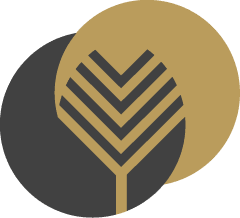
APS Professional development

Overview
Content advisory note
Due to the focus of this activity, participants will be exposed to content that is confronting. Please consider your environment when undertaking this activity, and ensure privacy at a level appropriate for the subject matter, be mindful when others may be in view of, or hearing distance from the webinar (e.g. family, co-workers, in public), and lock your screen when unattended. If you have been exposed to family violence or feel that now is not the right time for you to participate in this activity, consider your well-being before you begin. Participants are encouraged to take breaks and seek help if needed.
Many psychologists will work with clients who have experienced family violence or have perpetrated violence against others. They may be confident dealing with victim/survivors but have less experience with perpetrators. Traditional methods such as anger management, drug and alcohol treatment or stress management are often inadequate and may increase the risk of harm to others.
This 2-part webinar provides a platform of knowledge and resources that can help psychologists work more confidently and effectively with perpetrators of family violence.
Part 1: Understanding violent behaviour: recorded 26 August 2025.
This webinar will explore why traditional models of therapeutic practice may be ineffective and dangerous with perpetrators of family violence, and will cover:
- why traditional therapeutic practices can be dangerous,
- understanding violence, including physical and non-physical violence,
- common myths and misunderstandings,
- current models of practice, and
- managing coercion, collusion, and manipulation.
Part 2: Assessment and Interventions: recorded 23 September 2025.
This webinar will delve into appropriate forms of assessment and interventions for individuals, groups, and communities, and will cover:
- assessment,
- individual interventions for both physical and non-physical violence,
- group & community interventions,
- is trauma-informed intervention possible or ethical?
- managing other ethical conundrums (e.g., cultural considerations, confidentiality, and whether trauma informed practice can successfully be applied in this work), and
- new directions in the field.
Level of Learning
Foundational. This activity is targeted to those new to the topic.
Duration of access
Access to the recordings and presenter slides is for 12 months from the date of confirmed registration.
APS CPD Approved
This activity has been assessed against the APS Standards for CPD activities and approved for its education quality. Learn more about the APS CPD Approval process.
CPD Frequently Asked Questions
Refer to the APS CPD Frequently Asked Questions for general and technical information when undertaking APS Professional development activities.
Activity details
On-demand webinar recording.
Learning Outcomes
Upon completion of these webinars, participants should be able to:
-
recognise why traditional therapeutic practices can be dangerous with this cohort,
-
learn methods of managing coercion, collusion, and manipulation,
-
explore practical interventions that can be used on perpetrators of violence,
-
identify some of the myths and misunderstandings about the primary drivers of violent behaviour,
-
identify relevant assessment tools, and
-
review whether trauma informed practice is possible or ethical with perpetrators of family violence
Presenter(s)
Dr Peter Streker MAPS
About the presenter(s)
Dr Peter Streker is a community psychologist who has worked in the family violence (FV) field for over 30 years, predominantly with thousands of men who have perpetrated violence.
Peter currently supervises dozens of private practitioners and FV workers at local government level and community agencies.
He has written articles and developed training on FV, bystander intervention, sexual assault, and preventing client violence and gender equity for agencies such as: Our Watch, DVRCV, No To Violence, Australian Psychological Society, AMES, local governments, universities, schools, businesses, Blue Knot Foundation (on complex trauma), induction training for 1800 Respect workers and professional and local sporting clubs (e.g., AFL & Rugby Union Players Associations).